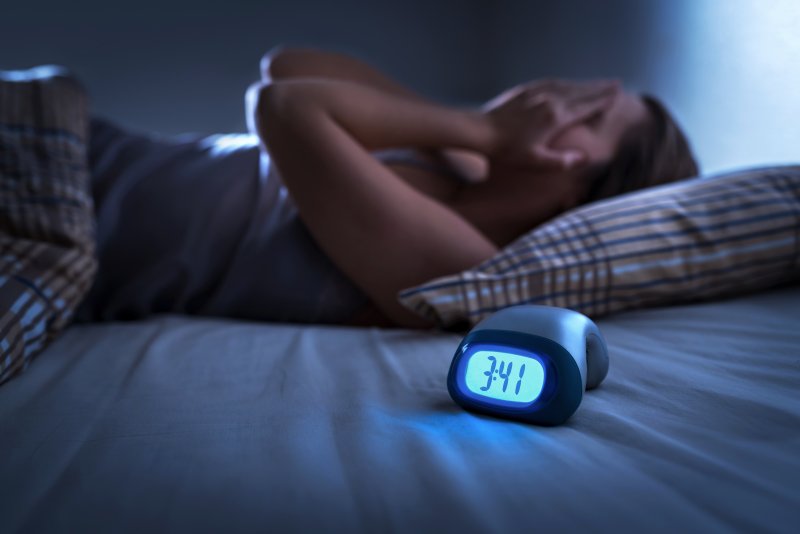
Sleep apnea is a sleep disorder in which breathing repeatedly stops and starts. This can potentially be dangerous and has been on the rise in the last few years. A large part of this has to do with the increasing rate of obesity in the United States. Sleep apnea can increase your risk for numerous different issues including high blood pressure, heart problems, type 2 diabetes, liver problems, and more. Your dentist shares some factors that can contribute to the development of sleep apnea in Dublin as well as what you can do to combat it.
What Are the Risk Factors for Sleep Apnea?
Here are some of the many factors that contribute to the development of sleep apnea:
- Obesity: If you have a lot of excess weight, your risk of sleep apnea increases greatly. Fat deposits around your upper airway can obstruct your breathing.
- Narrowed airway: If you have inherited a more narrow throat, you are more likely to encounter obstructions.
- Family history: If you have family members with sleep apnea, you may be more likely to develop it yourself.
- Being male: Men are two to three times more likely to have sleep apnea than women are.
- Smoking: Smokers are three times more likely to have obstructive sleep apnea than people who have never smoked. This is because smoking can increase the amount of inflammation and fluid retention in the upper airway.
- Some medical conditions: Medical issues like Parkinson’s disease, high blood pressure, congestive heart failure, and type 2 diabetes can all contribute to sleep apnea.
- Alcohol use: Alcohol, sedatives, and tranquilizers relax the muscles of the throat and can make sleep apnea worse.
How Can You Combat Sleep Apnea?
There are many different things you can do to prevent and reduce the severity of sleep apnea. Here are some of the most effective options:
- Lifestyle changes: If you have mild sleep apnea, you may be able to treat is with some lifestyle choices. Losing excess weight, avoiding alcohol, sleeping in certain positions, and ditching the cigarettes can help.
- Continuous Positive Airway Pressure (CPAP): For this treatment, you wear a mask over your nose while you sleep. This mask is hooked up to a machine that delivers a constant flow of air into your nose. This helps to keep the airways open, allowing you to breathe the way that you should. This is the most common treatment for sleep apnea.
- Oral Appliances: For people who have mild to moderate sleep apnea but aren’t able to tolerate or get relief from CPAP, oral appliances are a great option. They are constructed by your dentist and worn in the mouth at night. They generally support the jaw in a forward position in order to maintain an open airway.
If you think you have sleep apnea, consult with your dentist about your options. They will be able to help you get some relief and a sounder sleep.
About the Author
Dr. Eric Buck earned his Doctor of Dental Surgery from The Ohio State University College of Dentistry and is involved in numerous professional organizations so he can continue to expand his knowledge in the field. Some of his affiliations include the Ohio Dental Association and the American Academy of Dental Sleep Medicine. Dr. Buck offer sleep apnea therapy as one of his many services. For more information or to schedule an appointment, visit his website or call (614) 792-1800.
